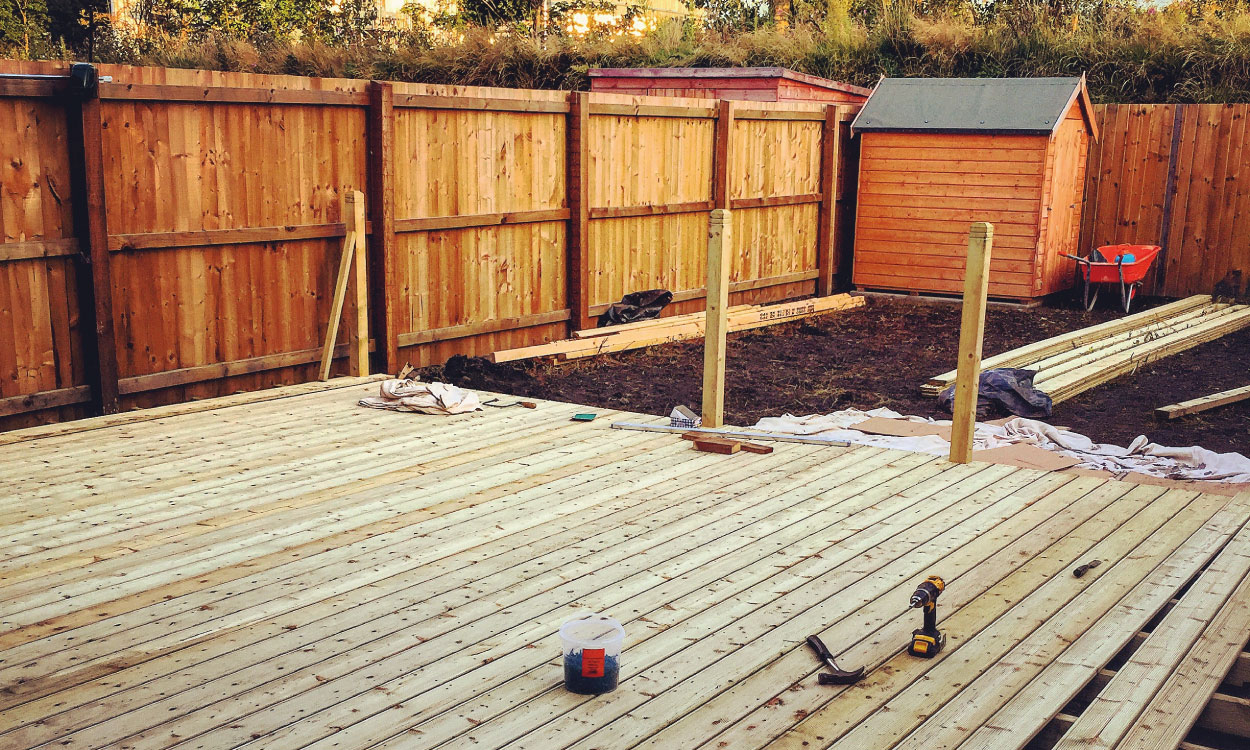Installing a deck in your garden can be an excellent way to create an outdoor oasis, providing a space for relaxation, entertainment, and enjoying the beauty of nature. However, before embarking on your decking project, it’s essential to understand whether you need planning permission. This blog post will guide you through the regulations and considerations regarding planning permission for decks, ensuring you have all the information you need to proceed confidently with your project.

Understanding Planning Permission
Planning permission is a legal requirement in many cases when carrying out building work or making significant changes to your property. It ensures that any development adheres to local regulations and does not negatively impact the environment or neighbouring properties. When it comes to installing a deck, there are specific criteria that determine whether planning permission is necessary.
Decking Height: To Seek Permission or Not?
One crucial factor that determines whether you need planning permission for your deck is its height above ground level. In general, if your decking is less than 30cm above ground level, it falls under “permitted development” and does not require planning permission. This means you can proceed with confidence knowing that your project meets the necessary guidelines.
However, if your decking will be elevated 30cm or more above ground level, planning permission may be required. This elevation limit ensures that any raised structures undergo proper scrutiny to maintain safety standards and prevent potential issues such as obstructing views or violating privacy.
Assessing Garden Area Coverage
Another consideration when determining if planning permission is needed for your deck is the percentage of garden area it covers. If your proposed decking covers more than 50% of the total garden area (including any existing extensions or outbuildings), then you will likely require planning permission.
This rule aims to preserve sufficient open space within gardens while preventing excessive construction that could harm biodiversity or impact neighboring properties’ amenity value. By considering this aspect, planning authorities ensure that your decking project strikes the right balance between enhancing your outdoor space and maintaining a harmonious environment.
Exceptions and Additional Considerations
While the guidelines mentioned above provide a general framework for understanding planning permission requirements, it’s essential to note that exceptions and additional considerations may apply. Local regulations can vary, so it is advisable to consult with your local planning authority or seek professional advice if you are unsure about the specifics.
Some factors that might influence whether planning permission is needed include conservation areas, listed buildings, or properties located in protected areas. These circumstances may impose stricter rules to preserve architectural integrity, protect natural habitats, or maintain the character of an area. Consulting with experts will help you navigate any additional requirements and ensure compliance with all relevant regulations.
The Benefits of Seeking Planning Permission
Although seeking planning permission may require additional effort and time investment, there are several benefits to obtaining approval for your deck installation:
- Peace of Mind: By obtaining planning permission, you can proceed with your project confidently, knowing that it adheres to local regulations and won’t face any legal issues in the future.
- Preserving Property Value: Ensuring compliance with planning regulations helps maintain property values by preserving neighbourhood aesthetics and preventing potential disputes.
- Environmental Considerations: Planning permission ensures that development considers environmental impacts such as drainage systems, biodiversity preservation, and sustainability measures.
- Neighbourhood Harmony: Obtaining permission shows respect for neighbouring properties by ensuring that your project won’t negatively impact their privacy or amenity value.
By considering these benefits alongside the specific requirements for your decking project, you can make an informed decision regarding whether to seek planning permission.
In Conclusion
Installing a deck can transform your outdoor space into a haven where countless memories are made. To determine whether you need planning permission for your decking project, consider factors such as height above ground level and garden area coverage. Remember that seeking professional advice and consulting with your local planning authority is crucial to ensure compliance with all relevant regulations.
While navigating the planning permission process may seem daunting, it ultimately ensures that your decking project aligns with legal requirements, environmental considerations, and neighborhood harmony. So, whether you need planning permission or not, take the necessary steps to create a stunning deck that enriches your lifestyle while respecting the surrounding environment.

